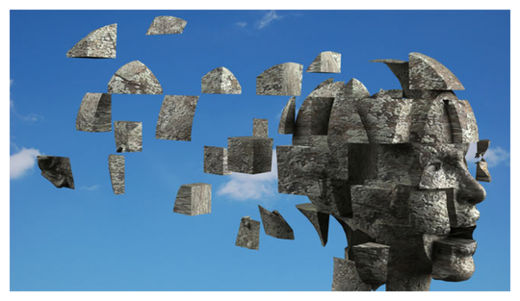
The man in question, who the study's authors refer to as Patient TN, suffered two strokes in 2003 that almost completely eradicated his primary visual cortex. This brain region, located at the back of the skull, is responsible for processing visual input from the eyes and shipping it to the rest of the brain. Thus, Patient TN's blindness is caused by a faulty brain circuitry rather than eye damage. Indeed, one could assume that his eyes are still transmitting visual information to his brain, but "nobody is home" to collect the message.
Without his primary visual cortex, you might have predicted that Patient TN should be utterly blind, but follow-up experiments at the University of Geneva suggested the contrary.
In 2005, neuropsychologist Dr. Alan Pegna and colleagues placed a series of pictures with facial expressions in front of Patient TN's eyes and asked him to guess the emotions being portrayed in the photos.
Amazingly Patient TN could accurately distinguish between happy and angry faces 60 percent of the time, which is a success rate that could not be attributed to mere chance.










